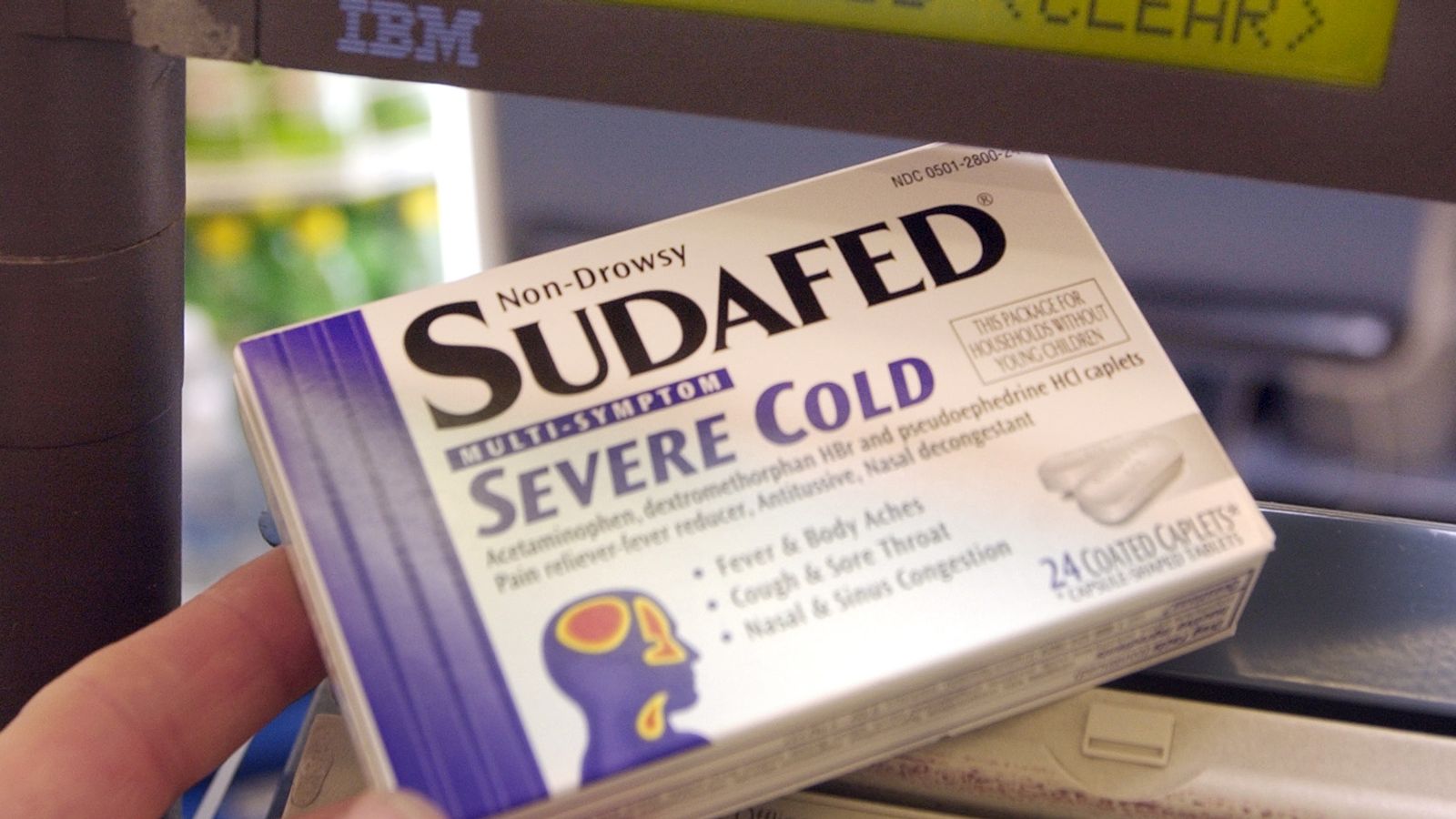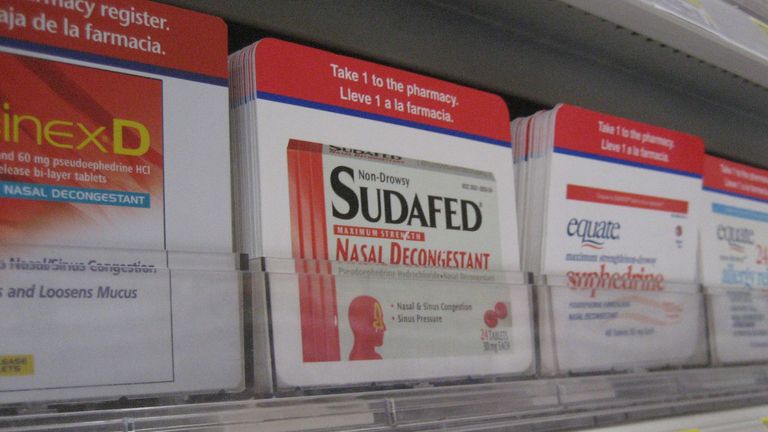Key ingredient used in cold and cough medicines ineffective for congestion relief, FDA panel says | UK News
Popular versions of cold and cough medications such as Sudafed are ineffective for congestion relief, according to a US drug advisory panel.
An FDA advisory panel voted on Tuesday against the effectiveness of phenylephrine – the key drug found in many over-the-counter cough and cold medicines – when taken orally.
The FDA assembled its outside advisers to take another look at phenylephrine after it found evidence that when phenylephrine is taken orally, a very small amount of the drug actually reaches the nose to relieve congestion.
Its panel decided no more trials were required to prove the drug’s ineffectiveness – a conclusion which could lead to pharmaceutical companies pulling their oral medications containing phenylephrine from store shelves, or manufacturers developing new formulations.
“The patient community requires and deserves medications that treat their symptoms safely and effectively and I don’t believe that this medication does that,” said Jennifer Schwartzott, one of the FDA panellists.
The FDA will now need to decide whether to revoke the drug’s over-the-counter designation as “generally recognised as safe and effective”.
If it does, it could lead to a major shake-up for the $2.2bn (£1.8bn) oral decongestants market, as phenylephrine is in the vast majority of its products.
Read more from Sky News:
New treatment for acute migraines could help thousands
Under-the-tongue COVID vaccine could be on the way
Phenylephrine gained popularity in the early 2000s as a replacement for pseudoephedrine, the decongestant used in Sudafed, which was moved behind the pharmacy counter in 2006 in an attempt to curb its misuse as an ingredient to make methamphetamine.
The panel is not questioning the effectiveness of behind-the-counter pseudoephedrine products or phenylephrine-based nasal sprays and drops, which consumers would need to switch to if oral phenylephrine products are dropped.
The Consumer Healthcare Products Association, which represents drug manufacturers, said: “The regulations for phenylephrine remain unchanged, and there is no change in the availability of products containing phenylephrine on store shelves.
“The vote was a non-binding suggestion for the FDA to consider. Consumers can maintain their confidence in the fact that these medicines continue to be recognised as safe and effective by FDA.”
The FDA usually follows the recommendations of its expert panel but is not obligated to do so. It has not yet announced when a formal decision will be made.


